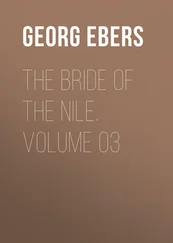Charles Warner - My Winter on the Nile
Здесь есть возможность читать онлайн «Charles Warner - My Winter on the Nile» — ознакомительный отрывок электронной книги совершенно бесплатно, а после прочтения отрывка купить полную версию. В некоторых случаях можно слушать аудио, скачать через торрент в формате fb2 и присутствует краткое содержание. Жанр: Путешествия и география, История, foreign_edu, foreign_antique, foreign_prose, на английском языке. Описание произведения, (предисловие) а так же отзывы посетителей доступны на портале библиотеки ЛибКат.
- Название:My Winter on the Nile
- Автор:
- Жанр:
- Год:неизвестен
- ISBN:нет данных
- Рейтинг книги:5 / 5. Голосов: 1
-
Избранное:Добавить в избранное
- Отзывы:
-
Ваша оценка:
- 100
- 1
- 2
- 3
- 4
- 5
My Winter on the Nile: краткое содержание, описание и аннотация
Предлагаем к чтению аннотацию, описание, краткое содержание или предисловие (зависит от того, что написал сам автор книги «My Winter on the Nile»). Если вы не нашли необходимую информацию о книге — напишите в комментариях, мы постараемся отыскать её.
My Winter on the Nile — читать онлайн ознакомительный отрывок
Ниже представлен текст книги, разбитый по страницам. Система сохранения места последней прочитанной страницы, позволяет с удобством читать онлайн бесплатно книгу «My Winter on the Nile», без необходимости каждый раз заново искать на чём Вы остановились. Поставьте закладку, и сможете в любой момент перейти на страницу, на которой закончили чтение.
Интервал:
Закладка:
In this same court I saw an old Nebk tree, which grows on the spot where the ark of Noah is said to have rested after its voyage. This goes to show, if it goes to show anything, that the Flood was “general” enough to reach Egypt.
The mosque of Sultan Hassan, notwithstanding its ruined and shabby condition, is the finest specimen of pure Arabic architecture in the city; and its lofty and ornamented porch is, I think, as fine as anything of its kind in the world. One may profitably spend hours in the study of its exquisite details. I often found myself in front of it, wondering at the poetic invention and sensitiveness to the beautiful in form, which enabled the builders to reach the same effects that their Gothic successors only produced by the aid of images and suggestions drawn from every department of nature.
We ascend the high steps, pass through some dilapidated parts of the building, which are inhabited, and come to the threshold. Here the Moslem removes his shoes, or street-slippers, and carries them in his hand. Over this sill we may not step, shod as we are. An attendant is ready, however, with big slippers which go on over our shoes. Eager, bright little boys and girls put them on for us, and then attend us in the mosque, keeping a close watch that the slippers are not shuffled off. When one does get off, leaving the unholy shoe to touch the ground, they affect a sort of horror and readjust it with a laugh. Even the children are beginning to feel the general relaxation of bigotry. To-day the heels of my shoes actually touch the floor at every step, a transgression which the little girl who is leading me by the hand points out with a sly shake of the head. The attention of this pretty little girl looks like affection, but I know by sad experience that it means “backsheesh.” It is depressing to think that her natural, sweet, coquettish ways mean only that. She is fierce if any other girl seeks to do me the least favor, and will not permit my own devotion to her to wander.
The mosque of Sultan Hassan was built in the fourteenth century, and differs from most others. Its great, open court has a square recess on each side, over which is a noble arch; the east one is very spacious, and is the place of prayer. Behind this, in an attached building, is the tomb of Hassan; lights are always burning over it, and on it lies a large copy of the Koran.
When we enter, there are only a few at their devotions, though there are several groups enjoying the serenity of the court; picturesque groups, all color and rags! In a far corner an old man is saying his prayers and near him a negro, perhaps a slave, also prostrates himself. At the fountain are three or four men preparing for devotion; and indeed the prayers begin with the washing. The ablution is not a mere form with these soiled laborers—though it does seem a hopeless task for men of the color of these to scrub themselves. They bathe the head, neck, breast, hands and arms, legs and feet; in fact, they take what might be called a fair bath in any other country. In our sight this is simply a wholesome “wash”; to them it is both cleanliness and religion, as we know, for Mr. Lane has taught us what that brown man in the blue gown is saying. It may help us to understand his acts if we transcribe a few of his ejaculations.
When he washes his face, he says:—“O God whiten my face with thy light, on the day when thou shalt whiten the faces of thy favorites; and do not blacken my face, on the day when Thou shalt blacken the faces of thine enemies.” Washing his right arm, he entreats:—“O God, give me my book in my right hand; and reckon with me with an easy reckoning.” Passing his wetted hand over his head under his raised turban, he says:—“O God, cover me with thy mercy, and pour down thy blessing upon me; and shade me under the shadow of thy canopy, on the day when there shall be no shade but its shade.”
One of the most striking entreaties is the prayer upon washing the right foot:—“O God, make firm my feet upon the Sirat, on the day when feet shall slip upon it.”
“Es Sirât” is the bridge, which extends over the midst of Hell, finer than a hair and sharper than the edge of a sword, over which all must pass, and from which the wicked shall fall into Hell.
In these mosques order and stillness always reign, and the devotions are conducted with the utmost propriety, whether there are single worshippers, or whether the mosque is filled with lines of gowned and turbaned figures prostrating themselves and bowing with one consent. But, much stress as the Moslems lay upon prayer, they say that they do not expect to reach Paradise by that, or by any merit of their own, but only by faith and forgiveness. This is expressed frequently both in prayers and in the sermons on Friday. A sermon by an Imam of a Cairo mosque contains these implorings:—“O God! unloose the captivity of the captives, and annul the debts of the debtors; and make this town to be safe and secure, and blessed with wealth and plenty, and all the towns of the Moslems, O Lord of the beings of the whole earth. And decree safety and health to us and to all travelers, and pilgrims, and warriors, and wanderers, upon thy earth, and upon thy sea, such as are Moslems, O Lord of the beings of the whole world. O Lord, we have acted unjustly towards our own souls, and if Thou do not forgive us and be merciful unto us, we shall surely be of those who perish. I beg of God, the Great, that He may forgive me and you, and all the people of Mohammed, the servants of God.”
CHAPTER VIII.—THE PYRAMIDS
THE ancient Egyptians of the Upper Country excavated sepulchres for their great dead in the solid rocks of the mountain; the dwellers in the lower country built a mountain of stone in which to hide the royal mummy. In the necropolis at Thebes there are the vast rock-tombs of the kings; at Sakkara and Geezeh stand the Pyramids. On the upper Nile isolated rocks and mountains cut the sky in pyramidal forms; on the lower Nile the mountain ranges run level along the horizon, and the constructed pyramids relieve the horizontal lines which are otherwise unbroken except by the palms.
The rock-tombs were walled up and their entrances concealed as much as possible, by a natural arrangement of masses of rock; the pyramids were completely encased and the openings perfectly masked. False passages, leading through gorgeously carved and decorated halls and chambers to an empty pit or a blind wall, were hewn in the rock-tombs, simply to mislead the violator of the repose of the dead as to the position of the mummy. The entrance to the pyramids is placed away from the center, and misleading passages run from it, conducting the explorer away from the royal sarcophagus. Rock-tomb and pyramid were for the same purpose, the eternal security of the mummy.
That purpose has failed; the burial-place was on too grand a scale, its contents were too tempting. There is no security for any one after death but obscurity; to preserve one’s body is to lose it. The bones must be consumed if they would be safe, or else the owner of them must be a patriot and gain a forgotten grave. There is nothing that men so enjoy as digging up the bones of their ancestors. It is doubtful if even the Egyptian plunderers left long undisturbed the great tombs which contained so much treasure; and certainly the Persians, the Greeks, the Romans, the Saracens, left comparatively little for the scientific grave-robbers of our excellent age. They did, however, leave the tombs, the sarcophagi, most of the sculptures, and a fair share of the preserved dead.
But time made a pretty clean sweep of the mummy and nearly all his personal and real property. The best sculptures of his tomb might legally be considered in the nature of improvements attaching themselves to the realty, but our scientists have hacked them off and carried them away as if they were personal estate. We call the Arabs thieves and ghouls who prowl in the the tombs in search of valuables. But motive is everything; digging up the dead and taking his property, tomb and all, in the name of learning and investigation is respectable and commendable. It comes to the same thing for the mummy, however, this being turned out of house and home in his old age. The deed has its comic aspect, and it seems to me that if a mummy has any humor left in his dried body, he must smile to see what a ludicrous failure were his costly efforts at concealment and repose. For there is a point where frustration of plans may be so sweeping as to be amusing; just as the mummy himself is so ghastly that his aspect is almost funny.
Читать дальшеИнтервал:
Закладка:
Похожие книги на «My Winter on the Nile»
Представляем Вашему вниманию похожие книги на «My Winter on the Nile» списком для выбора. Мы отобрали схожую по названию и смыслу литературу в надежде предоставить читателям больше вариантов отыскать новые, интересные, ещё непрочитанные произведения.
Обсуждение, отзывы о книге «My Winter on the Nile» и просто собственные мнения читателей. Оставьте ваши комментарии, напишите, что Вы думаете о произведении, его смысле или главных героях. Укажите что конкретно понравилось, а что нет, и почему Вы так считаете.












